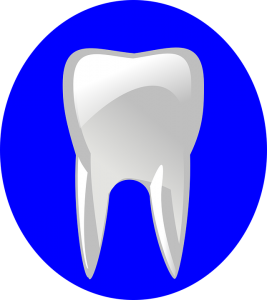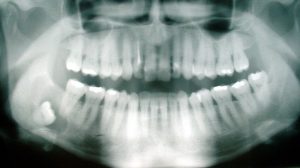 Hey, friends, I’m back. This time with a slew of questions from all of YOU about your teeth. Last Sunday on the radio broadcast we talked about dental topics – something I don’t do very often. I don’t talk about the teeth much because basically in medical school we learn exactly NOTHING about teeth. Happily, HCMC (the health care system that employs me) has a terrific group of dentists and oral surgeons.
Hey, friends, I’m back. This time with a slew of questions from all of YOU about your teeth. Last Sunday on the radio broadcast we talked about dental topics – something I don’t do very often. I don’t talk about the teeth much because basically in medical school we learn exactly NOTHING about teeth. Happily, HCMC (the health care system that employs me) has a terrific group of dentists and oral surgeons.
On the show, we intended to talk about dental implants and other oral surgeries. Eventually, we did do this. But I, of course, had other insightful and probing questions for my guest (oral surgeon Louis Christensen) – questions like:
- “Why are they called ‘wisdom teeth’?”
- And maybe more to the point, “Did I get dumber when I had my wisdom teeth yanked out?”
I think the correct answer to the first questions is “nobody knows” and the answer to the second question is “Yes.”
Dental implants are really cool if you are a hockey player. Or even if not a hockey player.
 Fortunately, listeners to the show had questions that were much more en pointe, as they say. We learned cool stuff from Dr. Louis Christensen (that’s him in the picture) who joined me early on a Sunday morning in the WCCO studios in downtown Minneapolis. He’s an oral surgeon who does surgeries not only on wisdom teeth, but he does dental implants, jaw reconstruction, face reconstruction (oh my!) and lots of other work to keep our teeth and faces in top shape.
Fortunately, listeners to the show had questions that were much more en pointe, as they say. We learned cool stuff from Dr. Louis Christensen (that’s him in the picture) who joined me early on a Sunday morning in the WCCO studios in downtown Minneapolis. He’s an oral surgeon who does surgeries not only on wisdom teeth, but he does dental implants, jaw reconstruction, face reconstruction (oh my!) and lots of other work to keep our teeth and faces in top shape.
As is often the case, though, we didn’t get to cover all the questions people had, so in this post we’ll try to answer some. If you missed the show, you may want to check out the podcast here.
So if you cornered an oral surgeon at a cocktail party, what would you ask?
Sending questions via text message is a popular way to ask questions during our live show – but we get dozens of text questions and we just don’t have time to get to them all! So I asked Dr. Christensen to give really brief responses to some of the questions that were sent in via the text message line. He did just that, and below are his responses to some dental questions. Sort of like we cornered him at a cocktail party and started peppering him with questions!
Here are some a) questions from real listeners, b) Dr. Christensen’s answers and c) some of my (Dr. Hilden) comments. Here we go . . .
Q: When you do a bone graft for dental implants, where does the bone come from?
Dr. Christensen: “Bone can come from synthetic sources, cadavers, animals (obviously undergone sterilization) and one’s self. The amount of bone need dictates the source.”
![Gilbert Stuart [Public domain], via Wikimedia Commons](https://healthymatters.org/wp-content/uploads/2016/06/Gilbert_Stuart_Williamstown_Portrait_of_George_Washington-247x300.jpg)
Gilbert Stuart [Public domain], via Wikimedia Commons
My comments: We learned on the show that dental implants have come a looooong way since, say, George Washington. (You know, wooden teeth and all? Actually I learned that the 1st Prez never had wooden teeth – they were made of bone and ivory and such. Another myth debunked).
But seriously, implants can replace a missing tooth anywhere in the mouth. They are placed by putting a metal, usually titanium, pin into the bone and then the tooth is affixed to that pin. Sort of like the footings on a fence post that are anchored into the ground. These are my words as a total non-dentist, but it helps me to visualize it. So the implant is anchored into the bone of your jaw or face. It can be done really quickly. In some cases – a new tooth can be implanted in a single day! Hockey players, there is hope!
Q: Does Fosamax use affect future use of implants?
Dr. Christensen: “Yes, Fosamax can affect one’s ability to get implants. Just like getting a tooth out, placing an implant poses a risk for the bone to not heal.”
My comments: This is a subject we talked about on the radio broadcast – that being the risks of certain medications, called bisphosphanates, on the health of bones. I don’t mean to pick on Fosamax (which is the brand name for alendronate). It and the other bisphosphanates are really helpful medications for patients with conditions ranging from osteoporosis to cancer. But there is a particular issue with the jaw bone, which can be damaged by these medications which in turn can make pulling teeth and getting dental implants rather dicey. To hear more on this subject from Dr. Christensen, listen to the podcast of last week’s show.
Q: Why are dental implants considered cosmetic and so often not covered by insurance?
Dr. Christensen: “Insurance plans are individualized; some insurances are covering dental implants. Patients would need to contact their insurance.”
My comments: Insurance issues are a bit of a sore spot with me (and lots of doctors). I am frequently baffled by insurance issues. I know it is possible because I have awesome dental insurance but that may not be the case for everybody. Teeth are so important to our well-being, and yet getting coverage for procedures which are potentially life-altering, such as implants, can be difficult. I think it is a feature of our health care system in general; how we choose to pay for our medical (and dental) care in this country. One listener to the show, after hearing us talk about the cost of dental procedures, sent a text message to me which essentially chastised me for making light of the subject. I felt bad that I came across that way. I actually long for the day when we all can get the health care we need and deserve without having to check our wallet first.
Q: My dentist recommended a root canal, but I’m not having any pain. Why get the root canal?
Dr. Christensen: “Root canals are recommend for teeth as an effort to save them. Usually teeth recommended for root canals have had a history of cavities and have hurt previously. Always better to treat something before it becomes painful.”
My comments: Most of us would rather gnaw our own arm off that get a root canal. So I can relate to the person who asked this question. Hey, my tooth isn’t hurting (yet) so why go through the root canal procedure? But the purpose of a root canal is to save a tooth from future problems. I never realized that the root canal may be your ticket to preventing having to have the tooth extracted (pulled) in the future. This is the branch of dentistry called endodontics. Also something I didn’t know. I get the various dontics confused. Orthodontics. Periodontics. Endodontics. Lots of specialization in dentistry, eh?
As an aside, I think the endodontics – the root canal people – have an image problem since in looking into this subject I found out that they actually launched root canal awareness week some time ago. It’s on their website. I’m not kidding. Hey, everybody, it’s root canal awareness week – let’s par-tay!
Root canals are so ripe for jokes I just can’t resist. But hey, it could save your tooth!
Q: I have lots of cavities over the years. Is it possible that wisdom teeth that are still in place are spreading infection to my other teeth?
Dr. Christensen: “Multiple cavities throughout the mouth are unlikely to be caused by wisdom teeth. An evaluation by a general dentist is always beneficial.”
My comments: So I g uess you can’t blame your wisdom teeth for the decay in the rest of your teeth. I can almost hear Dr. Christensen saying – even though he didn’t actually say this – that we should all brush and floss a bit more faithfully.
uess you can’t blame your wisdom teeth for the decay in the rest of your teeth. I can almost hear Dr. Christensen saying – even though he didn’t actually say this – that we should all brush and floss a bit more faithfully.
See the wayward tooth in the lower left of this x-ray? That’s a molar (wisdom tooth) coming in all kiddywampus.
Years ago I told a dentist friend of mine, back when I was youthful and reckless, that I didn’t regularly floss and that my dentist was none the wiser for it. He replied that dentists can tell when the guy sitting in the dental chair is telling a fib – I guess the decaying gums are a dead giveaway in the non-flossing patient. So do like your mom has been telling you for, like literally your whole life. Brush and floss. Every day. Two or three times every day. Just do it.
Q: Why do my teeth hurt when I eat cold or hot?
Dr. Christensen: “I would recommend an evaluation by a general dentist if your teeth hurt when eating/drinking hot or cold liquids or foods. There are multiple causes for temperature sensitivity.”
My comments: I echo Dr. C’s advice on this one. If eating hot or cold foods is actually hurting your teeth then you should go see your general dentist. It could be anything from worn away enamel (maybe from grinding your teeth, for instance) to exposed nerve roots from gum disease, to caries (dental-speak for cavities), to loose teeth. There are lots of possibilities. This is a good reason to see your dentist.
So that’s our dental lesson for the day. I really appreciate the advice of Dr. Louis Christensen and your time in checking with us on MyHealthyMatters. And for putting up with my wise cracks. Got a comment? Enter it below. And remember, subscribing by e-mail is simple – you can also do it below this post or up above. I promise not to flood your in-basket with lots of junk. Give it a try!
David
As always, whenever we give medical advice on Healthy Matters, either on the radio show or in this blog, please know that by necessity we can only give general advice. None of what you hear or read should be taken as specific advice for your own situation. For that, please see your own doctor, or in this case, dentist.
